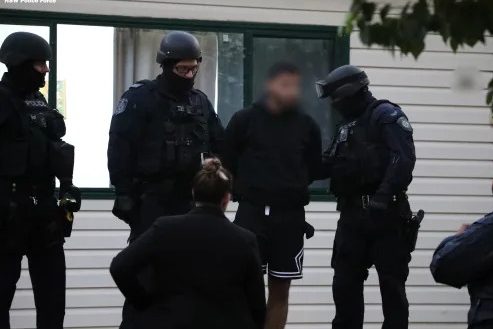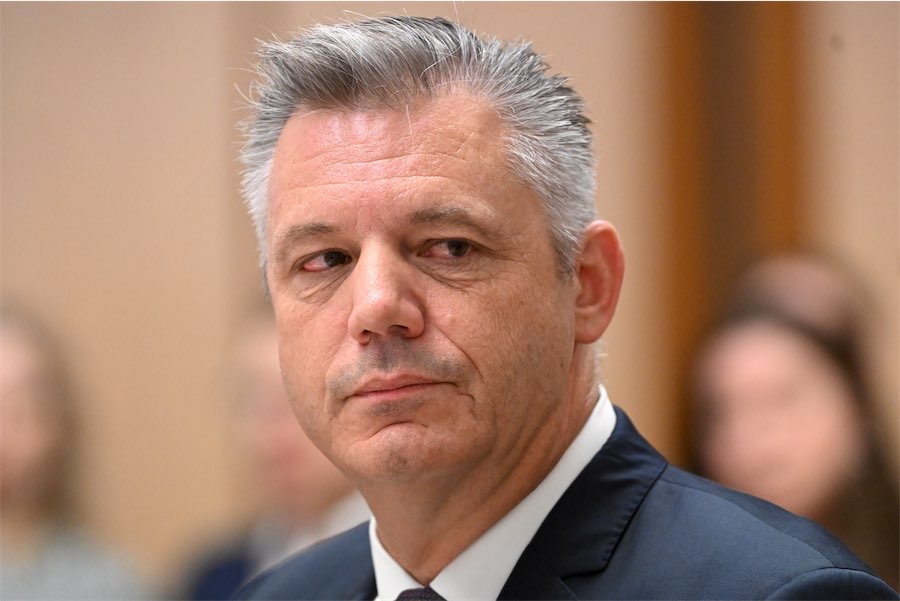By Michelle Grattan, University of Canberra
RECENTLY, talking to DLP senator John Madigan, Joe Hockey described himself as one of the most disliked people in the country. For an “end-the-age-of-entitlement” guy, that could even have been a badge of honour.
But the embattled Hockey has been hit with a particularly hurtful blow in the latest Essential Poll. He rates below Wayne Swan – the butt of unending Coalition criticism – when people are asked to name Australia’s best treasurer.
Choosing from a list of four, 30% said Peter Costello had been Australia’s best treasurer, followed by Paul Keating (23%), Swan (8%) and Hockey (5%).
When parliament resumed on Tuesday for the spring session, Hockey – who has been constantly under fire over the unpopular budget and has taken a special pounding for his claim about the poor not driving much – was the opposition’s Question Time target.
Labor homed in on the Medicare co-payment: the measure that, as much as any single item, has come to symbolise the political toxicity of this budget. Some questions recycled previous Hockey comments that have come back to bite.
Did Hockey’s North Sydney electorate have one of the highest bulk-billing rates in Australia? It had been quite high, Hockey said, but not at the moment. Was the GP co-payment a tax by any other name? Speaker Bronwyn Bishop, who has the quaint and disconcerting habit of providing commentary on questions, described this one as “very strange” one.
And did Hockey agree “that you can spend just over $3 on a middy of beer, so that’s two middies of beer to go to the doctor?” Hockey had asked rhetorically immediately after the budget: “Is a parent really going to deny their sick child a visit to the doctor which would be the equivalent payment of a couple of beers or one-third of a packet of cigarettes?”
And so it went, including also a dig about the petrol and the poor. Hockey responded, rather curtly, that he had dealt with that last week, before defending his proposed fuel excise indexation.
The real blow on the co-payment had come earlier, when Clive Palmer reaffirmed, in the most unequivocal terms, PUP’s opposition to it. “We’re not going to have a co-payment of even one cent,” he said.
“You can talk to all the analysts and crunch all the numbers you want but the fact of the matter is the Palmer United senators will not be changing their position and the co-payment will not be getting through.”
PUP had been “inundated with calls from real Australians”, Palmer said, with the message that “they do not want it. There is zero chance of the Palmer United Party supporting it in the Senate.”
At the Coalition parties meeting, a couple of backbenchers, including outspoken Queensland Liberal Ian Macdonald, reported the co-payment’s unpopularity in the electorate.
Attempts to remodel the measure have turned out badly. After the Australian Medical Association was asked for its ideas, Health Minister Peter Dutton dismissed its plan, released last Thursday, as a windfall for doctors that would raise practically no revenue.
As things stand (a necessary qualification, considering the legislation hasn’t been introduced yet and Palmer may be flaky), the government looks like ending up having worn huge flak over the co-payment without actually being able to land it.
But faced with the PUP stand, Dutton is determined to keep pushing, hinting that behind the scenes the co-payment’s prospects are better. “I still strongly believe we can get an outcome on the co-payment because we need to,” he said.
“People will position publicly on these issues. The difficulty for us is that we’re not commenting on private discussions. All I can say is that privately we’ve had productive discussions with many of the senators.”
The charge is not due to start until July 1 next year, so the government is banking on having time. The downside for the government of pressing on is that the issue will continue to hang around as a weapon for its opponents.
More generally, the government is not doing any better getting its budget messaging consistent, let alone making it sound convincing.
After weekend threats from Finance Minister Mathias Cormann that taxes might have to go up if savings are not passed, Tony Abbott’s response when asked about this was to say: “We don’t support raising taxes; we support cutting taxes.”
Nor was the Prime Minister keen to endorse Education Minister Christopher Pyne’s fallback position, if his university reforms are blocked, that research funding might be cut.
Abbott was quizzed on these things when he was out talking (at Melbourne’s Peter MacCallum Cancer Centre) about the Medical Research Future Fund, which is supposed to be financed from the Medicare co-payment. If the co-payment can’t be implemented, the government will have to decide what to do about the promised fund, the potential of which it has talked up so strongly.
Listen to the newest Politics with Michelle Grattan podcast with guest Gareth Evans, here.
![]()
Michelle Grattan does not work for, consult to, own shares in or receive funding from any company or organisation that would benefit from this article, and has no relevant affiliations.
This article was originally published on The Conversation.
Read the original article.
Who can be trusted?
In a world of spin and confusion, there’s never been a more important time to support independent journalism in Canberra.
If you trust our work online and want to enforce the power of independent voices, I invite you to make a small contribution.
Every dollar of support is invested back into our journalism to help keep citynews.com.au strong and free.
Thank you,
Ian Meikle, editor





Leave a Reply